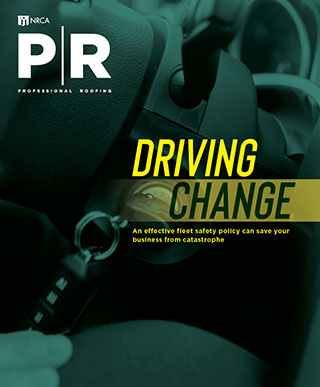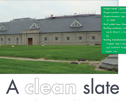A legislative battle is brewing regarding the future of the federal estate tax, or "death tax," as it commonly is referred to by its opponents. This battle's outcome could have significant implications for many small- and medium-sized businesses.
In 2001, Congress passed legislation to phase out the estate tax during a 10-year period. The tax has declined from its 2001 level of a 55 percent rate with a $675,000 exemption to a 45 percent rate with a $3.5 million exemption. On Jan. 1, 2010, the estate tax is scheduled to decline to zero—but only for one year. The tax is scheduled to revert to its 2001 level beginning Jan. 1, 2011.
Preventing problems
It doesn't require much imagination to foresee the extreme difficulties the uncertainty regarding the estate tax may create for estate owners, their families and their businesses. If Congress does nothing to address this issue, the estates of owners who die during 2010 will have no estate tax liability whereas estates of owners who die during or after 2011 will have substantial tax liability that could ultimately force the sale of family-owned businesses.
Congress needs to take action during 2009, and Capitol Hill sources indicate efforts are under way to develop legislation addressing the issue. However, forging a compromise may prove difficult after years of legislative warfare between opponents of the tax who would like to see it permanently repealed and supporters who believe the revenue derived from the tax is vital to funding government programs and an important incentive for charitable giving.
NRCA has advocated for permanent repeal of the estate tax based on the view that the tax results in double or even triple taxation; mandates excessive compliance costs on small businesses; and limits economic growth by taxing capital. However, it's clear the tax's repeal is off the table with Democrats controlling Congress.
Reaching compromise
During the 2008 presidential campaign, President Barack Obama said he supports freezing the estate tax at its 2009 level. Some members of Congress and key Congressional staff indicate the 2009 level is becoming the "consensus position" of what a future bill is likely to include.
However, liberal groups with strong ties to congressional Democrats are expected to lobby for a higher rate and lower exemption than Obama's position. Some Republicans are expected to push for a 15 percent top rate with a $5 million exemption, which was Republican presidential candidate John McCain's position, with the hope that a final compromise would end up somewhere between this and the 2009 level.
Other ideas that may be considered are indexing the exemption to inflation, improving the installment payment program and exempting homes from estates' values. Another issue that could receive more attention is the estate tax's effect on capital allocation within small businesses and how this affects economic growth.
One obstacle that surely will complicate efforts to reach a deal is the issue's budgetary implications. Because current law for 2011 and beyond entails a relatively high rate and low exemption, any compromise legislation passed by Congress that establishes a lower rate and larger exemption for those years will result in a net tax cut compared with the existing federal budget baseline. This means Congress will have to come up with "offsets" (other tax increases or spending cuts) to pay for an estate tax bill or waive "pay-as-you-go" budget rules designed to prevent legislation from adding to the federal deficit.
This could be especially problematic given that the federal deficit is approaching a level (as a percentage of gross domestic product) not seen since World War II.
Facing the challenge
Congress and President Obama clearly have a daunting challenge before them—crafting sound public policy in difficult circumstances. NRCA, as an active member of the Family Business Estate Tax Coalition, will continue to be engaged in this important issue as Congress moves forward.
Duane L. Musser is NRCA's vice president of government relations.



